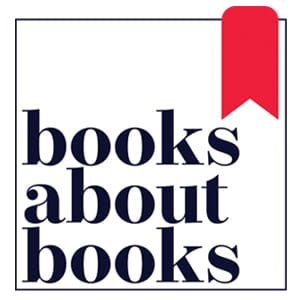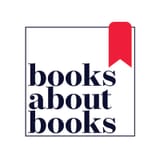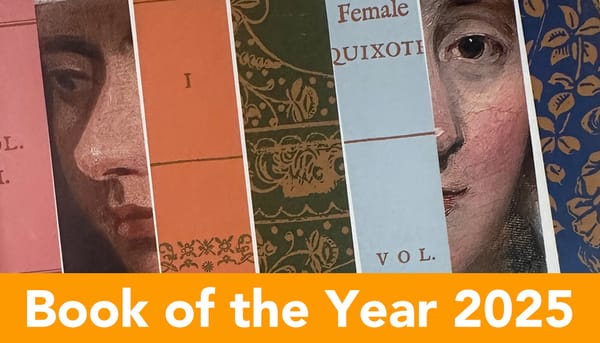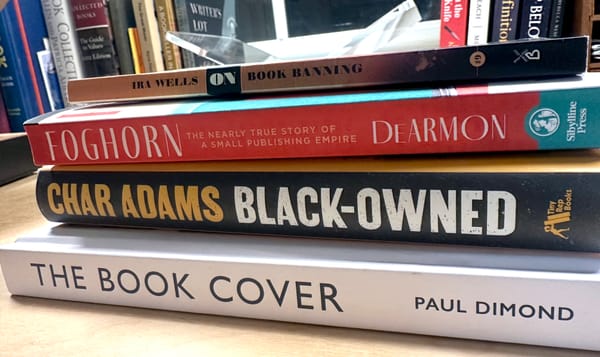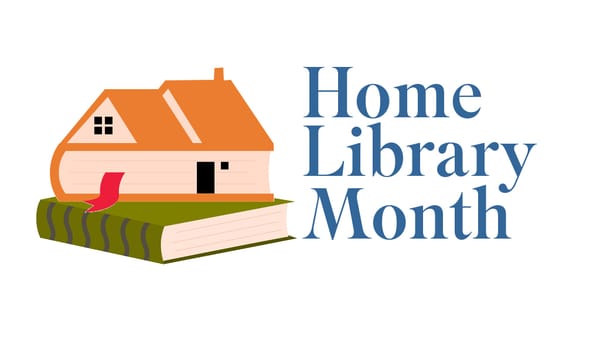Books in Early America
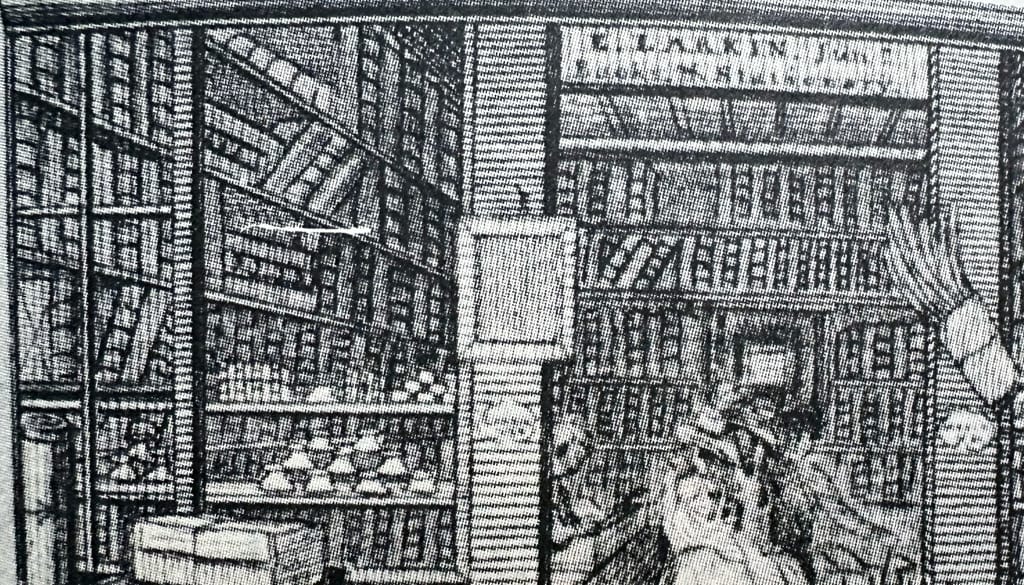
This July 4th holiday weekend had me revisiting some books and writing about... books and writings in early America. I wanted to share something that I ran across in a pamphlet from Williamsburg, VA that talks about how prevalent books were at the time of the American Revolution.
This slim 32-page document does an excellent job of introducing bookbinders and their work in colonial America while also highlighting some notable printers and Virginia craftsmen.
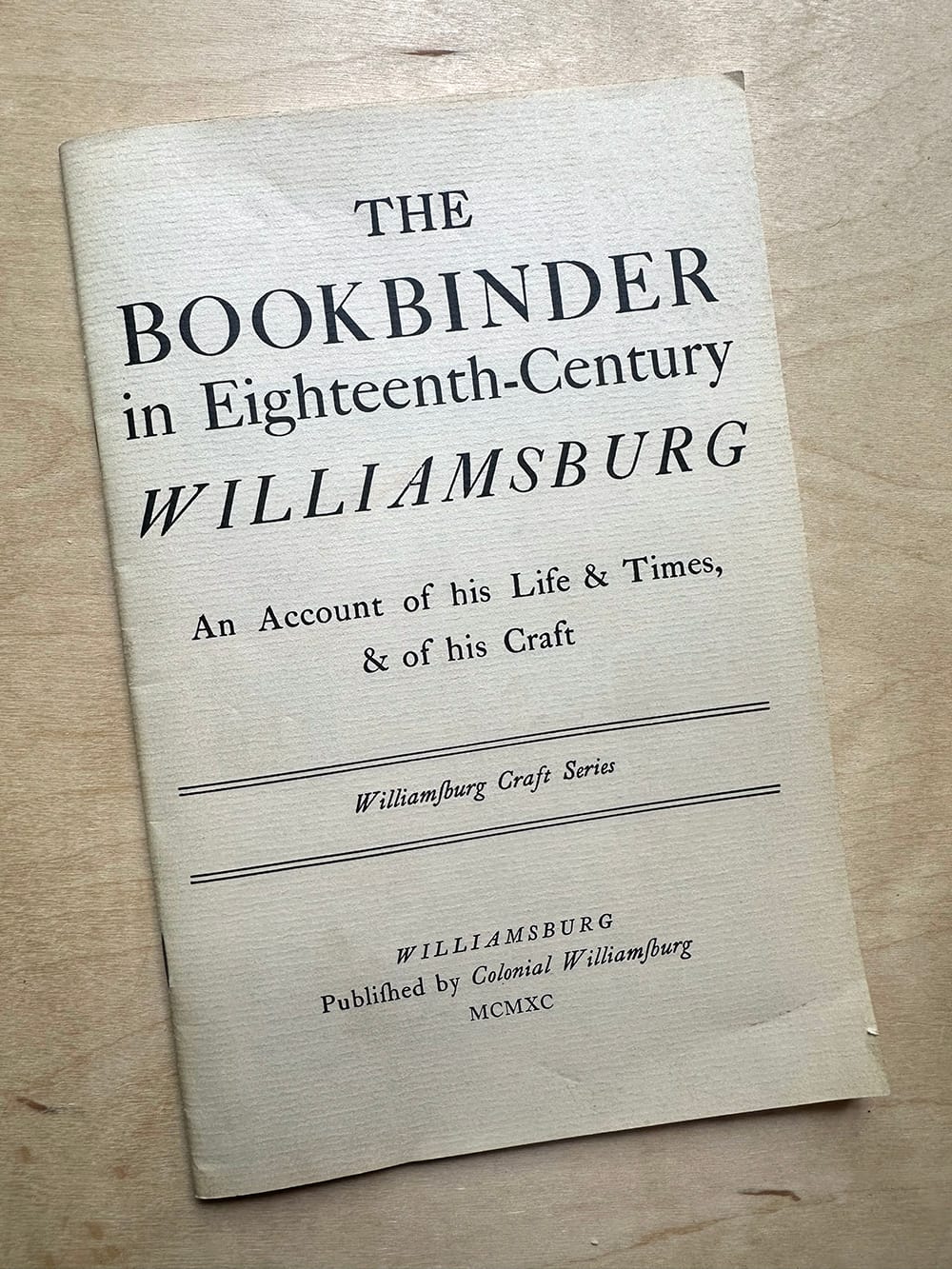
The Bookbinder in Eighteenth-Century Williamsburg is just a super-slimmed-down adaptation of what can be found in the 1966 book Bookbinding in Colonial Virgina by C. Clement Samford and John M. Hemphill II. It's a book that I've seen referenced before, but have yet to run across. One day.... one day... but, I digress...
On page 19, I ran across this tidbit of information about home libraries in America:
"According to one estimate, there were at least 1,000 private libraries with at least 20,000 volumes altogether before the colony was one hundred years old. Another study of 100 such collections, including the largest, calculated their average size at 106 titles (possibly twice that many volumes).
The average is high because the study included such very extensive libraries as those of William Byrd II, Robert Carter, and Ralph Wormeley. Nearly half of the libraries in the group studied had fewer than twenty-five titles. However, most Virginia gentlemen of the planter aristocracy owned at least an armful of books."
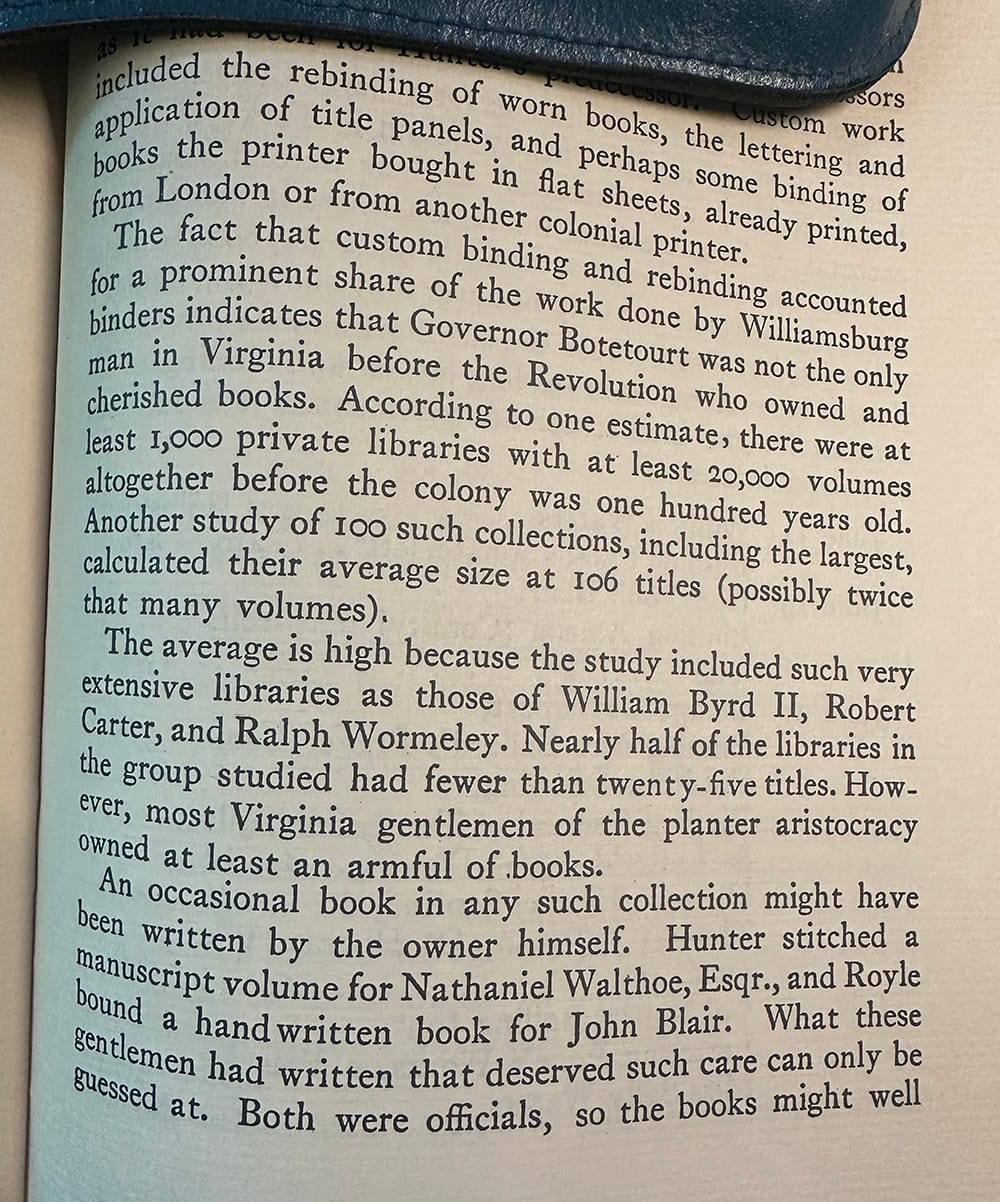
I know this is my ignorance showing, but I found 1,000k private libraries to be very high for a colony in 1770s America. I think that's great! It shows the power that books and sharing knowledge had in early America. Multiply that times all the open and honest debates happening, and you can see how they got to the notion of "it's time to found a new nation."
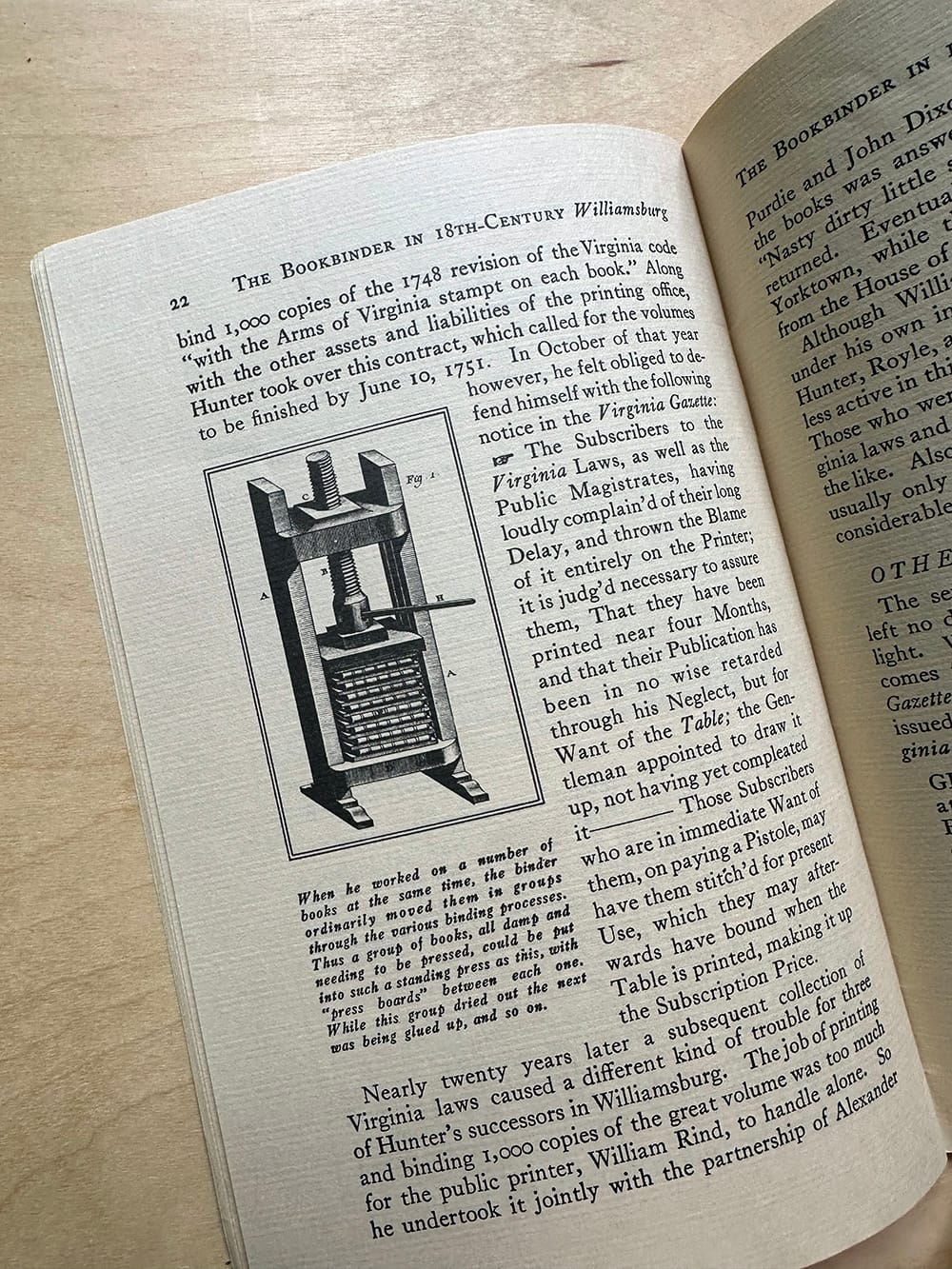
Following that thread led me to two other books on my shelf that would be of interest to anyone else investigating early American printing and publishing.
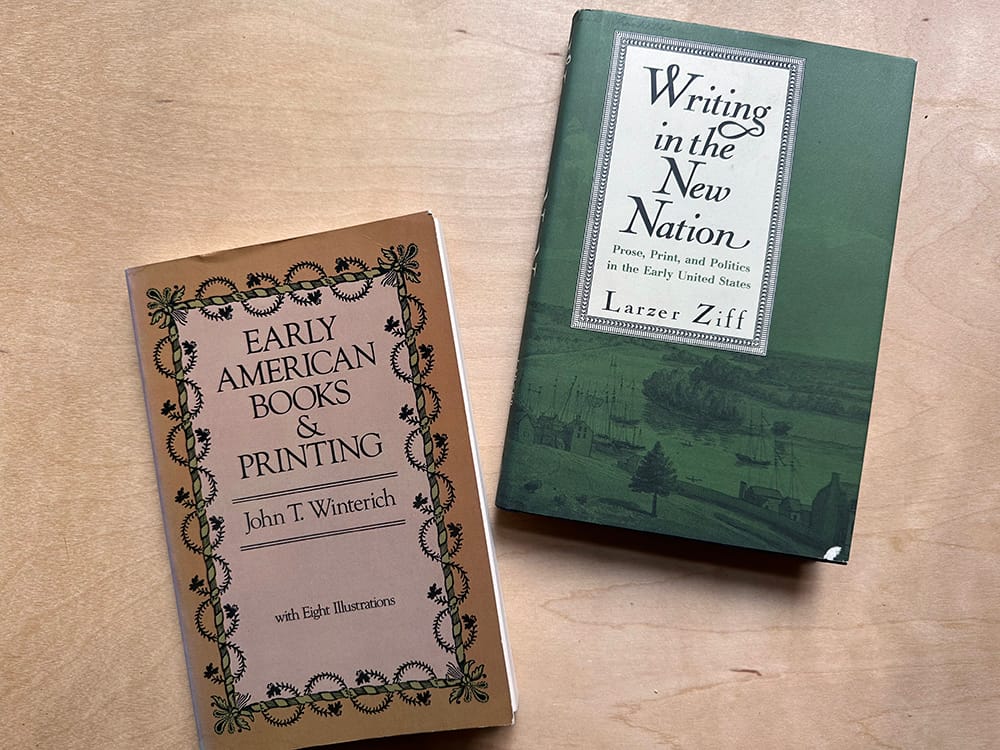
The first one is Larzer Ziff's Writing in the New Nation: Prose, Print, and Politics in the Early United States, and it is a really wonderful read. My copy is the 1991 Yale University hardcover. Ziff does a solid job of connecting all of the writing of the early days of the United States to political and social changes. It was fascinating to think about how influential so many personal travel stories, diaries, and personal histories were on the voting public. And not just on people, but the books and literature helped shape the topics of debate and ideals that needed to be protected and pursued. While not wholly unique to America, we're only 250 years removed from those days, and so much of the writing still feels urgent and fresh today.
The other book I grabbed was the 1981 Dover edition of John T. Winterich's Early American Books & Printing. Where Ziff's book connects all the dots between authors and ideas like privacy, American identity, and so on, Winterich's book connects all the dots of the "how books were published" and the economics of the birth of America's publishing industry. While the presses started with magazines and newspapers, other than books and novels, which paved the way for professional authors. It was a big step that came quickly to the fledgling United States and helped cement a uniquely shared American identity.
One of my favorite parts of the book is the frontispiece, a 1795 etching of the books and stationery store Ebenezer Larkin in Boston. This is thought to be the first printed image of an American bookstore, which is pretty cool.
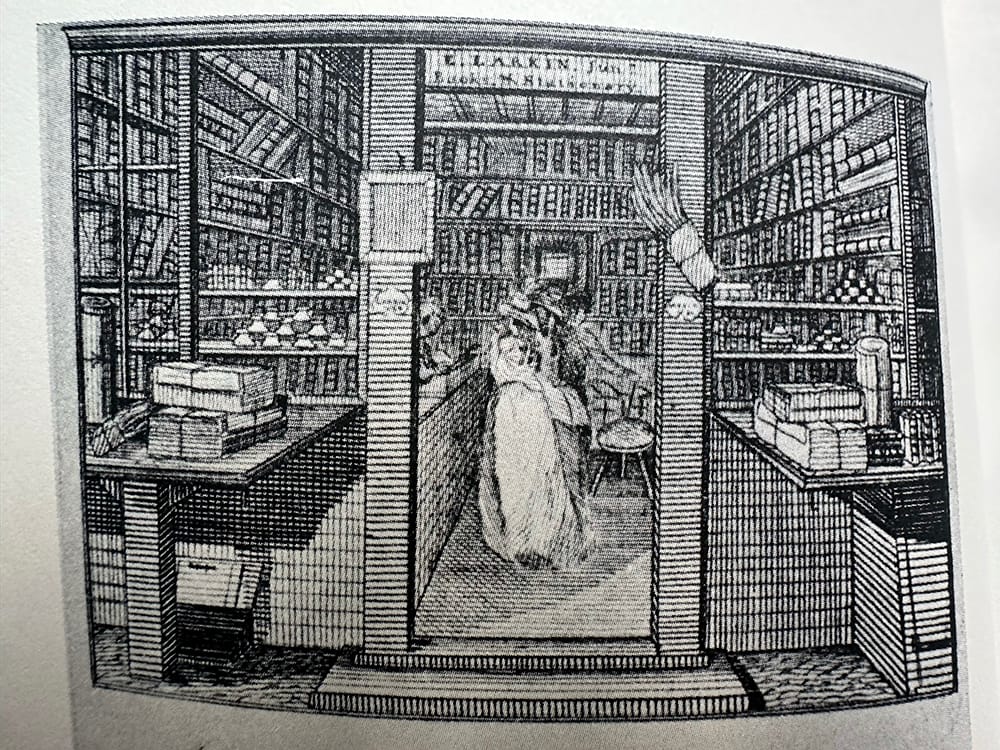
Hope you all are having a rest-filled July 4th weekend.
